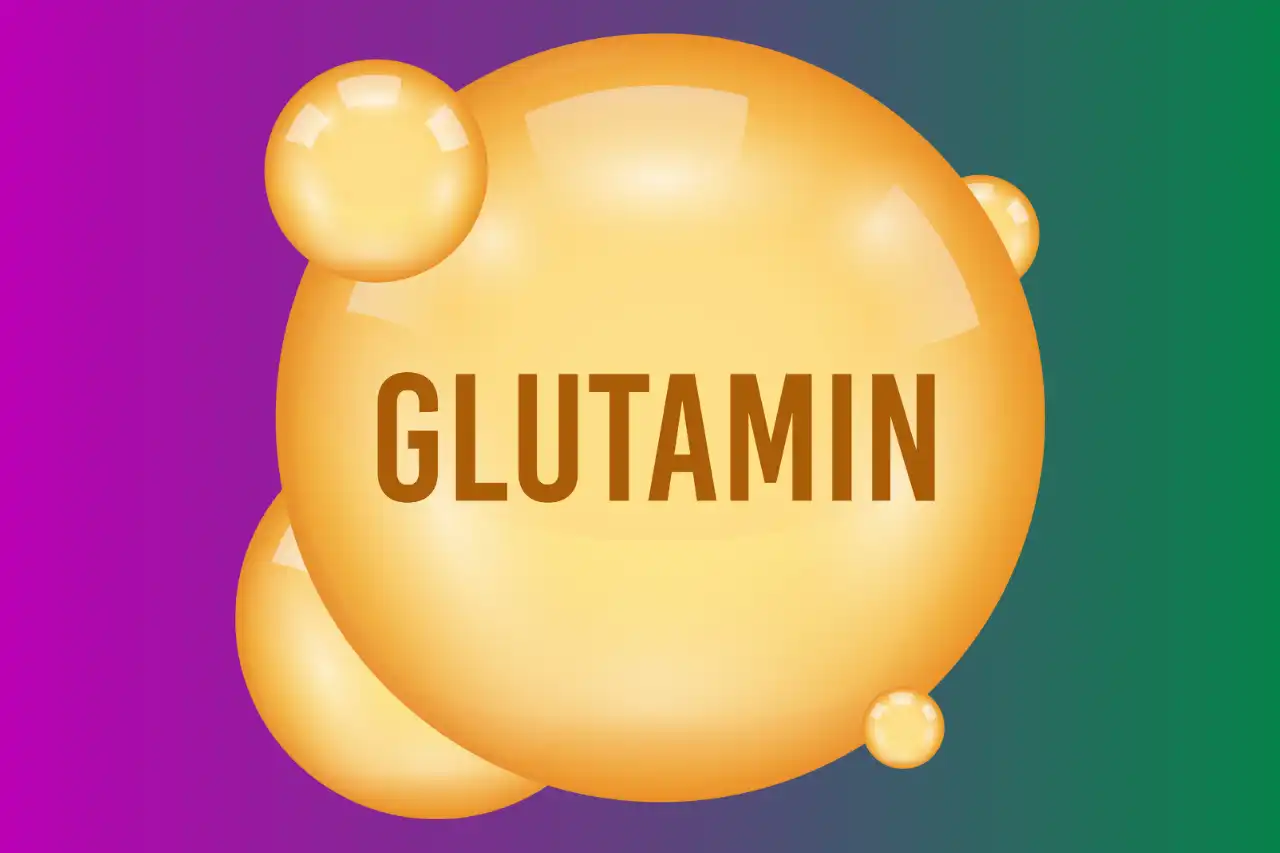-: GLUTAMINE :-
GLUTAMINE – THE ESSENTIAL FUEL FOR RECOVERY, IMMUNITY, AND GUT HEALTH…!!!
Glutamine is a conditionally essential amino acid, meaning the body can usually produce enough on its own, but during periods of illness, injury, stress, or heavy exercise, external dietary sources become crucial.
It exists in two forms — L-glutamine (the form found in food and supplements) and D-glutamine (less biologically active).
Daily Requirements
There’s no official RDA (Recommended Dietary Allowance) for Glutamine, but general needs are estimated as:-
Children To Adults
- Children – (5–7 gram) per day.
- Adolescents – (7–10 grams) per day.
- Adults – (10–15 grams) per day.
Requirements increase during illness, surgery, burns, trauma, or intense physical training.
Function on different Organ
- Gut & Digestive Tract
Details
Glutamine is the primary energy source for enterocytes — the cells lining your small intestine. It helps maintain the integrity of the gut lining, preventing harmful substances from leaking into the bloodstream (a condition often referred to as “leaky gut”).
This strengthens the intestinal barrier, promotes optimal nutrient absorption, and reduces inflammation in the digestive tract. It’s especially important for those recovering from infections, chronic gut issues,Inflammatory bowel disease(IBD) or intestinal surgery.
- Immune System
Details
Glutamine plays a crucial role in powering the immune system. It is the preferred fuel for white blood cells (lymphocytes, neutrophils) and cells in lymphoid tissues.
During stress, infection, or injury, the body’s demand for glutamine skyrockets to help generate immune cells, enhance their responsiveness, and speed up wound healing and recovery. A deficiency can weaken the immune response and increase vulnerability to illness.
- Muscles
Details
As the most abundant amino acid in skeletal muscle, Glutamine is essential for muscle tissue maintenance and regeneration.
It supports protein synthesis, helps reduce muscle breakdown after strenuous activity, and aids in faster recovery by reducing inflammation and soreness. It’s especially beneficial for athletes, bodybuilders, or anyone undergoing intense physical exertion.
- Brain & Nerve
Details
In the nervous system, Glutamine is a key precursor to the neurotransmitters glutamate (excitatory) and GABA (inhibitory) — both of which help regulate brain activity, emotional balance, memory, and mental clarity.
It plays a role in maintaining a healthy blood-brain barrier, supports focus, and may help buffer the effects of mental fatigue, stress, and low mood.
- Liver
Details
Glutamine helps detoxify ammonia, a byproduct of protein metabolism, by converting it into safer compounds like urea for excretion.
This detoxification process is vital for maintaining acid-base balance in the body. During liver stress (e.g., illness, heavy toxin exposure, or medications), Glutamine supports liver tissue repair and helps in regenerating damaged cells.
Symptoms incase of Deficiency
Deficiency, though uncommon in healthy people, may occur during extreme physical stress, illness, or malnutrition. Symptoms can include:-
- Poor gut health (bloating, indigestion, leaky gut).
- Frequent infections or weak immunity.
- Muscle wasting, fatigue, and delayed recovery after exercise.
- Mental fog, anxiety, and irritability.
- Slower wound healing.
Diagnosis
Doctors may recommend the following tests to determine zinc deficiency:-
- Plasma Amino Acid Profile
Details
Plasma Amino Acid Profile is the test used to measure Glutamine levels in the blood.
In clinical settings, it’s often evaluated along with other amino acids when nutritional deficiencies or metabolic disorders are suspected.
Food Sources
Veg Sources
- Legumes
- Lentils.
- Chickpeas.
- Beans.
- Vegetables
- Spinach.
- Cabbage.
- Parsley.
- Corn.
- Potatoes.
- Beets.
- Carrots.
- Whole Grains
- Quinoa.
- Oats.
- Brown rice.
- Others
- Tofu.
- Tempeh.
Non-Veg Sources
- Dairy products
- Yogurt.
- Milk.
- Cheese.
- Meat
- Beef.
- Turkey.
- Chicken.
- Others
- Fish.
- Shellfish.
- Egg.
Animal-based foods typically have higher Glutamine content, but plant-based sources contribute meaningfully in balanced diets.
What if Overconsumption
Glutamine from food rarely causes problems, but excessive intake from supplements (beyond 40 grams/day) may lead to:-
- Nausea, abdominal discomfort, or bloating.
- Headaches or dizziness.
- Back Pain.
- Constipation.
- Swelling in the face, lips, or tongue.
- Restlessness or mood swings in sensitive individuals.
- Possible strain on kidney or liver function in those with pre-existing disease.
Always consult a healthcare professional before high-dose supplementation.
Glutamine might not always take center stage, but it’s one of the body’s most reliable healers — nurturing gut health, speeding muscle recovery, boosting immunity, and protecting mental clarity. In the beautiful design of our bodies, Glutamine is the quiet caretaker that makes recovery and renewal possible every day.

